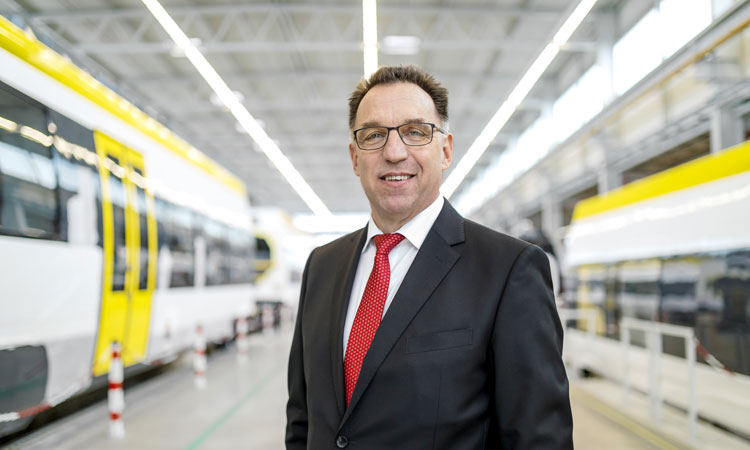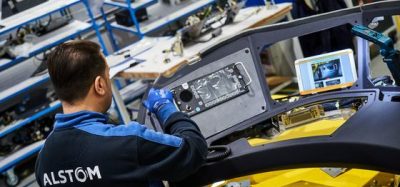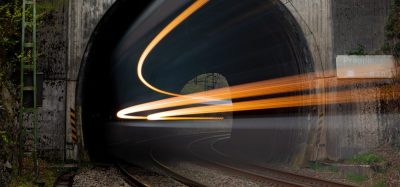Restoring rail passengers’ trust and incentives for clean mobility ‘made in Germany’
Posted: 22 June 2020 | Michael Fohrer | No comments yet
Considering the COVID-19 pandemic, Michael Fohrer, President of the German Railway Industry Association (VDB), looks at how rail passengers’ trust can be restored and the importance of establishing political incentives for clean mobility ‘made in Germany’.


Necessary measures to contain the COVID-19 pandemic have led to a drastic economic downturn in Europe. The railway industry is no exception. Under strict health protection measures, Germany’s railway industry has maintained systemically relevant services. However, our industry is only as strong as its weakest link in the value chain, and we are vulnerable to shutdowns across the globe. Nevertheless, overall, our supply chains are strong, diversified and reliable for the time being.
Still, we must face the risk of an economic aftershock. Railway operators are currently hit with significant revenue losses due to decreasing passenger numbers. Rail operations will not return to normal levels for an unknown period of time. Hence, the demand for new rail products might decrease. However, I am pleased to see that there is political awareness in the German government of the importance to link economic recovery to clean mobility. It is now essential to regain passenger trust and establish political incentives for clean mobility.
Economic recovery should not come at the expense of ambitious climate goals. Stimulus measures need to be integrated into a large‑scale climate protection strategy. Investments in low‑emission, sustainable mobility – as well as digital infrastructure – directly translate into jobs and regional added value. A strong railway industry will function as a durable economic engine after the crisis. Industrial value chains must be maintained throughout the pandemic. At the same time, it is essential to look ahead and draft stimulus measures promoting green technologies rather than restoring a high-emission economy. VDB proposes the following three measures to relaunch clean mobility ‘made in Germany’:
1. Increase health protection on trains
Many customers will choose their means of transportation not only based on price and comfort, but also on the perceived risk of infection. Industry, operators and policy makers must hold an open and ambitious dialogue about increased health protection on public transportation and bring technical innovation into operation quickly.
2. Embed a climate bonus in public tenders
In order to find innovative solutions to the duel crisis of COVID-19 and climate change, the federal government must provide large-scale R&D funding, and innovations must be implemented quickly. Progressive tender processes can contribute decisively to an ecologically and economically sustainable development. Tenders must ask for innovation, clean solutions and be based on the principle of total cost of ownership. A climate bonus within public tenders would enable a ramp-up for climate solutions through the economic re-start. Applicable law already provides for precisely this, with the ‘MEAT’ principle enabling contracting authorities to take account of criteria that reflect qualitative, technical and sustainability aspects, as well as price.
3. Stick to ambitious ETCS roll-out to push digitalisation of rail infrastructure
The nationwide digitalisation of the rail network is key to climate-friendly mobility and an important economic driver for the industry. Germany must adhere to its electrification and digitalisation targets and push towards an ambitious ETCS roll-out. As ETCS shifts infrastructure functionality into the vehicle, the government must also fund investments in on‑board ETCS equipment which is imperative for the digital infrastructure to develop its full potential.
Picking up speed after the COVID-19 crisis without going past the climate protection targets for 2030 will be a key challenge. An economic re-start and climate protection are by no means mutually exclusive, but instead are mutually dependent. Investments in climate-friendly technologies ‘made in Germany’ are a good answer to both challenges.
In December 2016, Michael Fohrer was appointed as Chairman of the Management Board of Bombardier Transportation GmbH. In addition to this role, Michael is President of the Region Central and Eastern Europe, Israel, a position he has assumed since December 2017. Michael joined Bombardier Transportation in 2008 as Vice President Services for Germany and Northern Europe. In 2011, he was made responsible for Bombardier’s service activities in Central Europe, Asia and Russia and, from 2014 onwards, for the service business of the newly created CEE region. Prior to joining Bombardier, Michael worked for 18 years at OTIS Elevator Company, where he held various international leadership positions in product development, global product management, marketing, sales and services. Michael holds a degree in Business Administration from the University of Pforzheim in Germany and graduated in the Darden University Senior Executive Program. Michael is President of the German Railway Industry Association (VDB).
Issue
Related topics
Coronavirus/COVID-19, Digitalisation, European Train Control System (ETCS), Passenger Experience/Satisfaction, Safety








